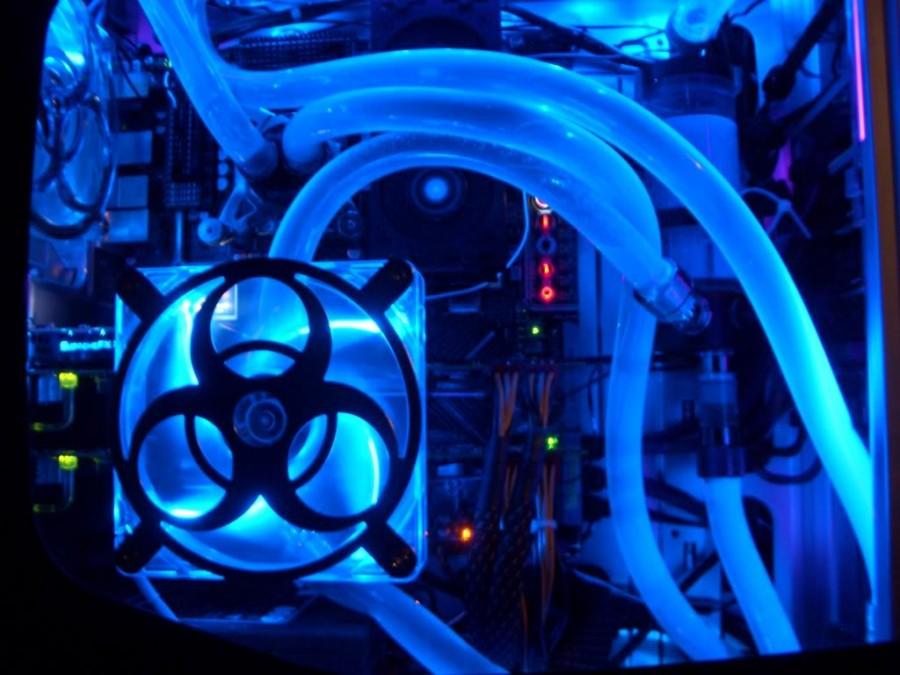PC Talk: Liquid Cooling
Processors are one of the things in a computer or system that generate the most heat and do the most work. The CPU fan that quickly disperses the heat away from the area surrounding the CPU, this method of cooling down the processor is what generates the most sound inside of a computer case. The fan cooling the CPU has to always run at a high RPM for the fan to properly get heat away from the processor as fast as possible.
Fans create a lot of noise with their spinning; some PC builders really, despise a noisy PC. Some go to the extreme to completely remove all fans from a computer, which can result in better temperatures if done right. The loudest thing in the PC is probably your CPU fan. To avoid the sound from the CPU case fan you can install a liquid cooler on top of you processor. Just like heat sinks for your CPU, liquid coolers use copper to transfer heat, and after that transfer of heat it either gets blown away with the fan that is above it or it just dissipates into the case and gets blown out of the case. In a liquid cooler heat gets transfers through contact with the processor and the copper plating and then into the copper than into a reservoir where the air gets cooled, this process is more efficient than just regular heat sink, fan cooling.
This process creates almost no sound and the cooling solution is nonconductive, so the chance of it frying parts in your computer is almost zero. This is why many of PC gamers are now switching to liquid cooled parts and silent case fans. Besides being quieter liquid cooling does offer more headroom for overclocking parts, because of the lower temperatures, liquid cooling is also now available for many of other parts. The graphics card, power supply, and RAM are just some of these parts, even though these parts don’t get really hot they do generate heat and the cooler the parts the more you can push the limits.

Noah Barno is a junior and a second year Journalism student.
Noah Barno helps at churches and other organizations (such as food drives and festivals.)
Some...













